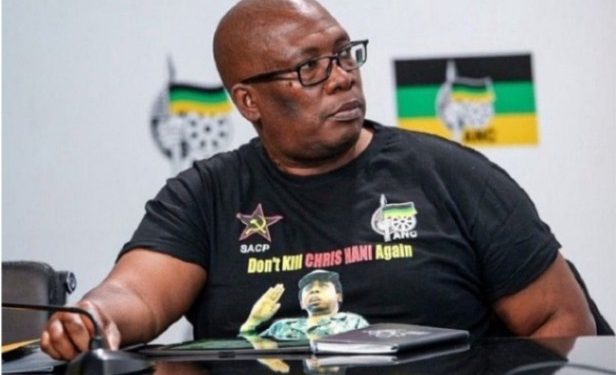In a dramatic turn of events, Gauteng Premier Panyaza Lesufi is reportedly laying the groundwork to challenge ANC President Cyril Ramaphosa’s leadership. Sources close to the party’s inner workings suggest that Lesufi is leveraging dissatisfaction within key ANC factions to mount a strategic bid for the party’s presidency.
The Lesufi Agenda
Lesufi, known for his dynamic leadership style and rising influence, is said to be positioning himself as a unifying figure capable of addressing frustrations within the ANC’s divided ranks. Central to his plan is the rumored replacement of ANC Secretary General Fikile Mbalula, a move aimed at consolidating support from powerful provincial and national structures.
In an unexpected twist, Lesufi’s strategy may involve aligning with former President Jacob Zuma. Zuma’s return to ANC politics, though controversial, could galvanize members nostalgic for his presidency while reigniting debates over governance and accountability that defined his time in office.
Adding to the intrigue, insiders indicate that Lesufi is exploring a possible alliance with Julius Malema, leader of the Economic Freedom Fighters (EFF). While historically adversarial, a partnership with Malema could signal a seismic shift in South African politics, potentially drawing younger voters and those disenchanted with the ANC’s current trajectory.
Potential Impacts on the ANC
Lesufi’s reported ambitions come at a precarious time for the ANC, which is grappling with declining voter support, internal factionalism, and growing public dissatisfaction over governance issues. Critics argue that his moves could further fracture the party, undermining its ability to present a united front ahead of the 2024 general elections.
“Lesufi’s bold approach may attract disillusioned members, but it risks deepening divisions in an already fragile ANC,” said political analyst Professor Lesiba Teffo. “If mishandled, this power struggle could weaken the party’s standing nationally.”
Lesufi’s partnership considerations with Malema are particularly noteworthy. An ANC-EFF coalition, while unlikely, could reshape South Africa’s political landscape by combining the ANC’s legacy appeal with the EFF’s radical populist base. However, such a coalition may also alienate moderates within the ANC and provoke resistance from party loyalists opposed to Malema’s aggressive political style.
Ramaphosa’s Position
The unfolding drama raises questions about Ramaphosa’s ability to maintain control over the ANC as he faces mounting criticism over his leadership style and perceived failures to address key issues like corruption and economic stagnation. His response to Lesufi’s maneuvers could determine not only his political future but also the ANC’s trajectory as South Africa’s ruling party.
Broader Implications
If Lesufi succeeds in his bid to unseat Ramaphosa, it could mark a dramatic shift in South Africa’s governance, potentially steering the ANC in a more populist or faction-driven direction. Conversely, failure to manage internal dissent could further erode public confidence in the ANC, creating opportunities for opposition parties to capitalize on the chaos.
As South Africa heads toward a critical election period, the stakes are higher than ever for the ANC. Lesufi’s bold ambitions, if realized, may redefine not only the party’s leadership but also its vision for the country. However, whether he can muster the support needed to enact such sweeping changes remains to be seen.






















